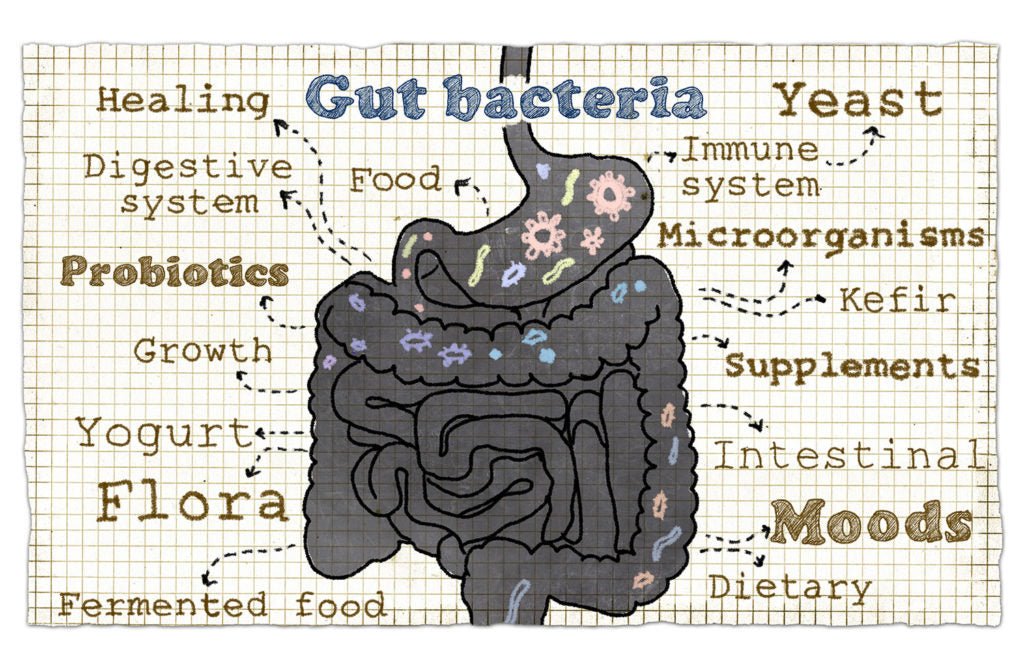
The Role of Gut Health in Fitness and Recovery
Gut health is one of the most underrated aspects of physical fitness and recovery. While most athletes and fitness enthusiasts focus on strength training, cardiovascular conditioning, or flexibility, the state of the gut microbiome plays a crucial role in overall performance, recovery, and health. The connection between the gut and fitness goes far beyond digestion. In fact, an optimally functioning gut is integral to muscle recovery, immune function, energy levels, and even mental clarity. This article explores the role of gut health in fitness and recovery, emphasizing how it affects different aspects of athletic performance and how to optimize your gut microbiome to enhance fitness goals.
What is Gut Health?
Gut health refers to the balance and function of the digestive system, particularly the gut microbiome, which is made up of trillions of bacteria, fungi, viruses, and other microorganisms. The gut microbiome influences various aspects of health, including digestion, metabolism, immune function, and even mental health. It acts as a communication system between the digestive tract and the rest of the body, constantly sending signals that impact how our body functions.
In recent years, research has shown a direct link between gut health and physical performance. A well-balanced microbiome contributes to efficient digestion, nutrient absorption, and overall metabolic function, which can greatly influence energy levels, recovery, and muscle growth.
How Gut Health Affects Fitness
-
Digestion and Nutrient Absorption
One of the most important functions of the gut is breaking down food and absorbing nutrients. After a strenuous workout, your muscles need to rebuild, and this requires proper nutrition, including proteins, carbohydrates, fats, and micronutrients. A compromised gut microbiome can impair nutrient absorption, leading to deficiencies that hinder muscle growth and repair.
For example, the absorption of amino acids (the building blocks of protein) is vital for muscle recovery and repair. If your gut isn’t functioning optimally, it can be harder for your body to absorb the nutrients it needs to rebuild muscle tissue. This can result in slower recovery and diminished performance over time.
-
Immune System Function
Gut health plays a pivotal role in regulating the immune system. In fact, about 70% of the body’s immune cells reside in the gut, meaning it is central to fighting off illness and infection. When gut health is compromised by an imbalance in the microbiome, the immune system can become dysregulated, increasing susceptibility to illness and infection.
For athletes and fitness enthusiasts, the consequences of weakened immunity are significant. Illness or infection can severely impact performance and recovery, leading to missed training sessions, prolonged downtime, and impaired fitness gains. Maintaining a healthy gut can help bolster the immune system, ensuring that you stay in top shape to push through your training regimen without interruption.
-
Energy Production and Endurance
The gut microbiome has a significant influence on energy production. Certain bacteria in the gut help break down carbohydrates and other macronutrients, converting them into energy that fuels the body. Without a healthy gut microbiome, the efficiency of energy production could be impaired, leading to fatigue, sluggishness, and a decrease in endurance during workouts.
A healthy gut microbiome also helps regulate blood sugar levels, preventing spikes and crashes that can affect energy levels throughout the day. By keeping blood sugar stable, athletes are able to maintain steady energy during long training sessions or competitions, ultimately leading to improved endurance and performance.
-
Mental Health and Motivation
Another surprising connection between gut health and fitness is the relationship between the gut microbiome and mental health. Research has found that the gut is often referred to as the “second brain,” with the ability to influence mood, cognitive function, and even motivation. This is because the gut communicates with the brain through the gut-brain axis, a complex system of nerves, hormones, and chemicals.
A healthy gut microbiome can help regulate stress hormones and neurotransmitters like serotonin, which plays a critical role in mood regulation. A balanced gut can reduce feelings of anxiety, stress, and fatigue, all of which can negatively impact motivation and mental clarity. For those trying to maintain focus during workouts or training sessions, gut health may be just as important as physical health in maintaining a consistent and effective fitness routine.
-
Inflammation and Recovery
Exercise, especially intense or prolonged workouts, can cause temporary inflammation in muscles and tissues. While some inflammation is necessary for muscle growth and repair, excessive or chronic inflammation can lead to prolonged soreness, fatigue, and injury. A healthy gut microbiome helps regulate the body’s inflammatory response, reducing the risk of inflammation-related complications.
For athletes, managing inflammation is essential to ensuring quick recovery after intense training. A balanced gut microbiome helps reduce systemic inflammation, enabling faster healing, less muscle soreness, and reduced risk of overtraining. This is crucial for maintaining a consistent training schedule without overtaxing the body.
How to Improve Gut Health for Better Fitness and Recovery
Now that we understand the critical role of gut health in fitness and recovery, let’s explore some strategies for improving gut health:
-
Eat a Diverse, Whole-Food Diet
A diverse range of plant-based foods, including vegetables, fruits, whole grains, and legumes, provides prebiotics, which help nourish beneficial gut bacteria. A diet rich in fiber also promotes a healthy microbiome by encouraging the growth of good bacteria that can enhance digestion and nutrient absorption.
-
Include Fermented Foods
Fermented foods like yogurt, kefir, kimchi, sauerkraut, and kombucha are rich in probiotics, which introduce beneficial bacteria into the gut. These probiotics help maintain a balanced microbiome and can improve digestion, immunity, and overall gut health. Including fermented foods in your diet can support a healthy gut microbiome and contribute to better fitness and recovery.
-
Limit Processed Foods and Sugars
Excessive sugar and processed foods can feed harmful bacteria in the gut, leading to an imbalance in the microbiome. Diets high in refined sugars and unhealthy fats can promote inflammation and impair the body’s ability to recover from intense exercise. Limiting processed foods and refined sugars can help prevent these negative effects and support gut health.
-
Stay Hydrated
Proper hydration is essential for gut health. Water helps maintain the mucosal lining of the intestines, which is crucial for proper digestion and absorption of nutrients. Staying hydrated also supports detoxification and helps maintain regular bowel movements, reducing the risk of gut imbalances.
-
Manage Stress
Chronic stress can negatively impact gut health by altering the balance of the gut microbiome. Stress hormones like cortisol can disrupt the gut-brain axis, leading to digestive issues, inflammation, and immune system dysfunction. Practicing stress management techniques, such as meditation, deep breathing, or yoga, can help reduce stress and support a healthy gut.
-
Consider Probiotic Supplements
If you are struggling with gut imbalances or digestive issues, probiotic supplements may help. Probiotics introduce beneficial bacteria to the gut, improving its overall function. Consult with a healthcare professional to determine if probiotic supplements are right for you, and if so, which strains are most beneficial for your specific needs.
Conclusion
Gut health plays a vital role in fitness and recovery, influencing everything from digestion and nutrient absorption to immune function, inflammation, and mental well-being. By nurturing a healthy gut microbiome, athletes can optimize their performance, enhance recovery, and maintain overall health. Eating a diverse diet rich in fiber, fermented foods, and probiotics, along with staying hydrated and managing stress, can all contribute to better gut health. Ultimately, understanding and improving gut health is a key strategy for achieving your fitness goals and maximizing recovery after exercise.
